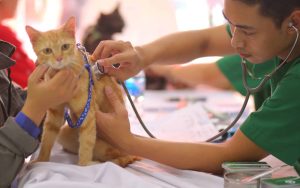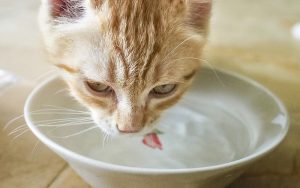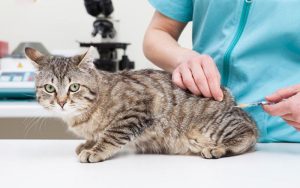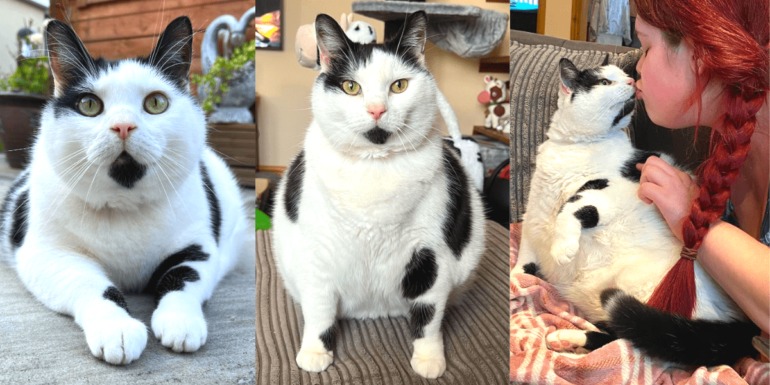Diarrhea is a common ailment in cats, often stemming from issues like spoiled or moldy food. Discover ways to treat cat diarrhea at home and ensure your feline friend’s well-being. Diarrhea is a prevalent symptom in various animals, and cats are no exception. However, understanding the causes and effective remedies for cat diarrhea is crucial for maintaining their health. What are the reasons behind this condition, and how can you address it to ensure your cat’s well-being?
1. Causes of Cat Diarrhea
Bacterial and Parasitic Infections: Cats are susceptible to infections such as worms through daily activities like eating or chewing on objects. Kittens, in particular, are more prone to bacterial infections like E.Coli, Salmonella, Campylobacter, and protozoa such as Coccidia. Symptoms include vomiting, diarrhea, bloating, dehydration, and, in severe cases, a 40-60% risk of mortality if not treated promptly.

Due to bacterial and helminth infections
Digestive Disorders: Sudden changes in a cat’s diet can lead to chronic diarrhea, possibly caused by spoiled or contaminated food. Pay attention to the cleanliness of food containers, and ensure the diet is appropriate for the cat’s age and developmental stage.

Digestive disorders
Ingesting Foreign Objects: Cats, being curious and agile, may encounter and consume various foreign objects during their activities, leading to stomach discomfort and diarrhea. These objects could range from decaying animal carcasses to toxic substances like gasoline, coal, cleaning agents, fleas, soap, herbicides, and more.

Impact due to epidemic
Effects of Illness Outbreaks: Ensure your cat has access to enough water, especially when dealing with diarrhea, as cats can lose a significant amount of fluids. Regular deworming every six months helps prevent the development of parasites, a common cause of diarrhea in cats.
2. Home Remedies for Cat Diarrhea
Ensure Adequate Water Intake: Cats experiencing diarrhea should be given sufficient water regularly, as they lose a considerable amount during episodes. Maintain a consistent and proper water supply to prevent worsening conditions.

Cân bằng chế độ ăn giữa chất đạm và chất xơ
Regular Deworming: Administer deworming treatments every six months to limit the growth of intestinal parasites, a leading cause of cat diarrhea.
Use Metamucil: Mix half a teaspoon of Metamucil with cat food twice a day for 5-7 days to control diarrhea. Metamucil is a fiber supplement that aids in reducing cholesterol.
Include Probiotics in the Diet: Incorporate digestive enzymes and probiotic
Supplement with Vitamin C: Vitamin C supplementation helps alleviate stress, contributing to improved diarrhea conditions in cats.
If your cat shows severe symptoms such as excessive water loss, loss of appetite, or bloody stools, consult a veterinarian promptly for appropriate and swift treatment.
3. Preventive Measures for Cat Diarrhea
Regularly monitor your cat’s health to detect any unusual signs and address them promptly. Schedule deworming and vaccinations to minimize the risk of viral or bacterial infections. Begin vaccinations when the cat is young or immediately upon acquiring it to ensure optimal health.

How to prevent diarrhea in cats
Maintain cleanliness in your cat’s living environment and surrounding objects. Additionally, provide a balanced and appropriate diet, avoiding sudden changes that may impact the cat’s digestive system.
4. FAQs for Cat Diarrhea
What to Feed a Cat with Diarrhea? During a bout of diarrhea, allow the cat to fast for 12-24 hours to monitor the condition and give the digestive system a rest. Provide clean water and another bowl of boiled chicken or beef broth to offer additional protein.

Feed your cat liquid, soft food after diarrhea
After the observation period, reintroduce soft food like chicken broth with various fiber-rich vegetables to balance the digestive system. Divide meals to prevent a recurrence of diarrhea.
What Medication Can Cats Take for Diarrhea? For over-the-counter medication, consult a pharmacist for the appropriate type and dosage as directed by a veterinarian. Additionally, consider giving the cat Metamucil twice a day for 5-7 days to help control diarrhea.
Should I Take My Cat to the Vet for Diarrhea? Whether to take your cat to the vet depends on the severity and duration of diarrhea. If it’s mild and recent, you can try the home remedies mentioned. However, if the symptoms persist or worsen, consult a veterinarian for professional guidance.
In conclusion, understanding the causes and effective remedies for cat diarrhea is crucial for maintaining their health. These tips, from home treatments to preventive measures, aim to empower cat owners to ensure the well-being of their feline companions. Always consult a veterinarian for severe or prolonged cases to receive proper medical attention.















